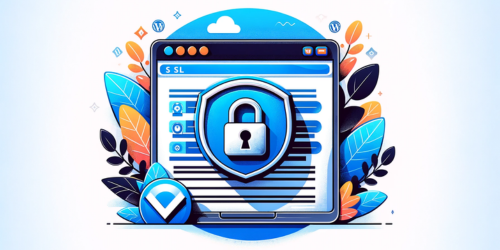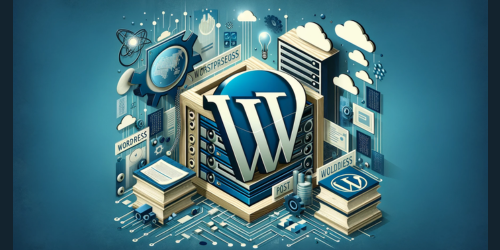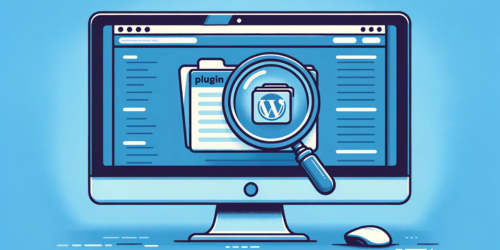Have you ever clicked on a website, only to be greeted by a loading screen that lingers just a bit too long? It’s frustrating, isn’t it? In the digital world, a slow-loading website is akin to a closed door for your visitors. Particularly for WordPress sites, speed is not just a convenience—it’s a necessity.
In the realm of WordPress, a platform known for its flexibility and ease of use, the importance of site speed cannot be overstated. A swift website enhances user experience, bolsters SEO rankings, and significantly reduces bounce rates. On the flip side, a sluggish site can repel visitors, diminish search engine rankings, and negatively impact your online presence.
The culprits behind a slow WordPress site are often varied and intertwined. Common factors include unoptimized images, an overload of plugins, themes that are not performance-optimized, poor hosting choices, and lack of effective caching. Understanding these elements is the first step towards transforming your WordPress site into a fast, efficient, and user-friendly platform.
Key Takeaways:
- Focus on diagnosing and resolving factors that cause slow WordPress site performance.
- Address both technical and user experience aspects to enhance site speed.
1. Assessing Your Site’s Current Speed
Before you can enhance your WordPress site’s speed, you need to know where you stand. Measuring your site’s current loading time is crucial. Here’s how you can do it:
- Use Speed Testing Tools: Tools like Google PageSpeed Insights or GTmetrix provide a comprehensive analysis of your site’s performance. They not only measure loading time but also identify specific issues.
- Analyze Results: These tools offer detailed insights into factors affecting your site’s speed, such as image sizes, script optimization, and server response times.
- Monitor Regularly: Speed testing is not a one-time task. Regular monitoring helps in tracking improvements and identifying new issues.
2. Common Causes of Slow WordPress Sites
A slow WordPress site can be due to various factors, often interrelated:
- Unoptimized Images: Large, high-resolution images can drastically slow down your site. Tools like TinyPNG help in reducing image size without losing quality.
- Plugin Overload: Excessive plugins, especially poorly coded ones, can significantly impact speed. Regularly review and deactivate unnecessary plugins.
- Hosting and Server Issues: Your hosting service plays a vital role. Opt for a reliable host with good server response times.
- Outdated WordPress Core and Plugins: Always keep WordPress and its plugins updated for optimal performance and security.
For more insights delve into the causes of Slow WordPress Editor.
3. Optimizing WordPress Themes and Plugins
Themes and plugins greatly influence your site’s speed. Here’s how to optimize them:
- Choose Performance-Oriented Themes: Select themes that are well-coded and optimized for speed. Avoid themes with unnecessary features. Check out free WordPress Themes for better optimization.
- Optimize Plugin Use: Evaluate the plugins you use. Deactivate and delete ones that are not essential.
- Regular Updates: Keep your themes and plugins updated to ensure they run efficiently and securely.
4. Leveraging Caching for Improved Speed
Caching is a critical element in speeding up WordPress sites:
- What is Caching? Caching stores frequently accessed data, reducing the need to reload it each time a user visits your site.
- Caching Plugins: Utilize plugins like W3 Total Cache or WP Super Cache for effective caching.
5. Advanced Techniques for Speed Optimization
For those looking to take their site’s performance to the next level:
- Database Optimization: Regularly clean your database to remove unnecessary data.
- Use a CDN: A Content Delivery Network (CDN) like Cloudflare can dramatically improve loading times by distributing content closer to your visitors.
- Fine-Tuning WordPress Settings: Adjust settings like post revisions and automatic saving to enhance performance.
To get the Clear insights for speeding the optimal performance of your WordPress site Dive in WPPedia’s article.
6. Regular Maintenance for Sustained Speed
Consistent maintenance is key to a fast WordPress site:
- Update Regularly: Ensure WordPress, themes, and plugins are up-to-date.
- Regular Backups: Use plugins like UpdraftPlus for scheduled backups.
- Performance Checks: Regularly monitor site speed and performance to stay ahead of issues.
7. Conclusion: The Impact of a Fast WordPress Site
A fast WordPress site is more than just a technical achievement; it’s a vital component of your online success. Speed enhances user experience, encouraging visitors to stay longer and engage more. It’s a core factor in SEO, helping your site rank higher in search engine results.
But remember, the quest for speed is ongoing. Technologies evolve, and so do best practices. Regularly refining your WordPress site not only keeps it at peak performance but also signals to your users and search engines that you value quality and efficiency. In the dynamic digital world, continuous improvement is the key to staying ahead.
8. FAQ Section
Q: How do I find out why my WordPress site is slow?
A: Identify the cause of slowness by checking for heavy plugins, oversized images, poor hosting performance, and inefficient coding or themes. Dive in Why WordPress admin is so slow? to get the clear view so you can improve it.
Q: How do I test my WordPress site performance?
A: Test your site’s performance using tools like GTmetrix, Pingdom, or Google PageSpeed Insights to analyze load times and get optimization recommendations.
Q: How do I debug slowness in WordPress?
A: Debug slowness by deactivating plugins one by one, switching to a default theme, and examining hosting server response times to isolate the issue.
Q: How do I troubleshoot slowness on my website?
A: Troubleshoot website slowness by optimizing images, minimizing plugins, improving server response time, and using a content delivery network (CDN). Increasing WordPress site speed without the needed of plugins will also help you troubleshoot this problem.



